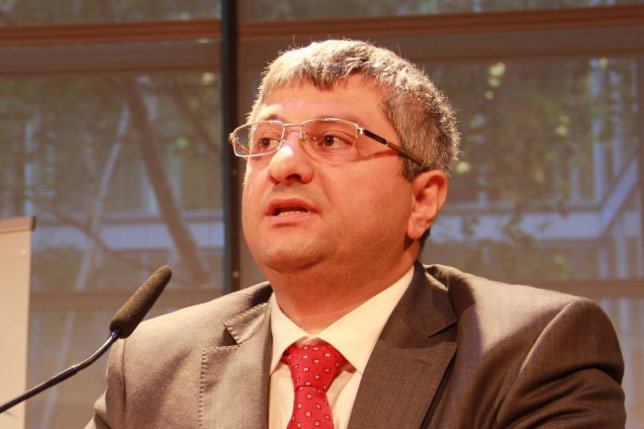Hizmet movement and military coups

Date posted: April 19, 2012
İHSAN YILMAZ, Wednesday April 18, 2012
With the democratization of Turkey and the new mentality of the judiciary it has created, prosecutors can now tackle past coup attempts and successful coups, the most recent being the Feb. 28, 1997 coup process. I call it a “process” since the toppling of former Prime Minister Necmettin Erbakan’s government was not a result of a sudden abrupt direct military takeover. Instead it was a long period of psychological warfare. There was a consent manufacturing campaign coupled with direct coup threats.
A few days ago, the most prominent leader of the Feb 28 coup, retired General Çevik Bir, was arrested. This has resulted in a panic among the coup’s supporters. In order to hide what they did in the past, they argue that the Hizmet Movement also supported the coup and sided with the generals against the Erbakan government. This is a distortion. It is not the first time, nor will it be the last time these media personalities resort to such distortions as they know very well that sometimes these distortions may be swallowed by some sections of society.
| The second item of the Feb. 28 National Security Council decision was the order that private schools of the so-called reactionary forces and religious communities must be taken over by the state. Anyone knowledgeable about this period of Turkish history knows the main target was the Hizmet schools. That is why Fethullah Gülen declared that if the schools are seen as danger he would advise their owners to hand the schools over to the state. |
Moreover, the media elite’s well-known motto is to “never underestimate the power of denial.” Thus, while they powerfully deny that they were organically linked to the military junta they also blame the victims and targets of the coup as the real perpetrators of the coup. Even this single skillful act of distortion suggests their lack of innocence but let us leave the verdict on this issue to the courts and focus on their arguments.
First of all, it is well known and crystal clear that Hizmet was one of the primary targets of the Feb. 28 coup. The second item of the Feb. 28 National Security Council decision was the order that private schools of the so-called reactionary forces and religious communities must be taken over by the state. Anyone knowledgeable about this period of Turkish history knows the main target was the Hizmet schools. That is why Fethullah Gülen declared that if the schools are seen as danger he would advise their owners to hand the schools over to the state.
The idea was applauded by the Hürriyet daily’s editor in chief at the time Ertuğrul Özkök and he penned a column on the issue. In several interviews, Gülen was asked about the issue. In short, Hizmet was one of the targets of the coup and being an intelligent man, Gülen knew this well before the Feb. 28 process began. For instance, the Radikal daily’s İsmet Berkan accused Gülen of being “hyper-sensitive” about a coup threat in a June 1999 column. Berkan also writes that Gülen warned against a coup in a 1995 meeting with journalists but it did not come true. Unfortunately for democracy, instead of focusing on these warnings and the probability of a coup, Berkan asked how Gülen got such information. This shows the reflexes and loyalty of our media towards anti-democratic developments. Since 1993, when the journalist Uğur Mumcu was assassinated and then president Turgut Özal died, Gülen was aware of the coup threats and he did whatever he could do to prevent them. Politicians, including some Welfare Party (RP) members did not take him seriously and were manipulated by the coup-loving media. Thus, it is illogical to claim that Gülen has sided with the coup against the Erbakan government.
Gülen was actually trying to prevent the worst. When Necmettin Erbakan signed the Feb. 28 decision instead of resigning, and challenging the coup by having new elections, there was not much that could be done by the weak civilian actors vis-à-vis the almighty state.
It must not also be forgotten that in addition to the big media groups such as Doğan and Bilgin, major “civil” society organizations and trade unions such as Turkish Industry and Business Association (TUSİAD), Turkish Union of Chambers and Commodity Exchanges (TOBB), Confederation of Turkish Trade Unions (TÜRK-İŞ), Confederation of Progressive Trade Unions (DİSK), Turkish Confederation of Employers’ Unions (TİSK), Turkish Tradesmen’s and Artisans’ Confederation (TESK), etc. strongly supported the military and the 1997 coup.
Seeing that he was unable to prevent the coming coup, Gülen tried to contain the damage. Instead of challenging and provoking the military, he tried to argue that civilians may make mistakes and military officers might feel that they have a responsibility (he was simply referring to the de facto facts), but coups could be more damaging.
If some of the sentences in his interviews are not picked and chosen but his interviews are analyzed in their entirety, it is seen that in very difficult and challenging times, he was still trying to make his case for democracy despite the coup-loving generals, media, business tycoons, trade union leaders, politicians, civil society institutions and terrible mistakes of the RP politicians. Actually, it is these mistakes that paved the way for the self-criticism of today’s Justice and Development Party (AKP) leaders and the emergence of the AKP. Today, everybody claims to be a champion of democracy and defender of freedoms but in those difficult days, with the exception of a few good men in the media and civil society, the majority of the power elite either openly supported the coup or they remained silent.
Source: Today’s Zaman http://www.todayszaman.com/columnist-277901-hizmet-movement-and-military-coups.html
Tags: Hizmet-inspired schools | Military coups in Turkey | Turkey |
























